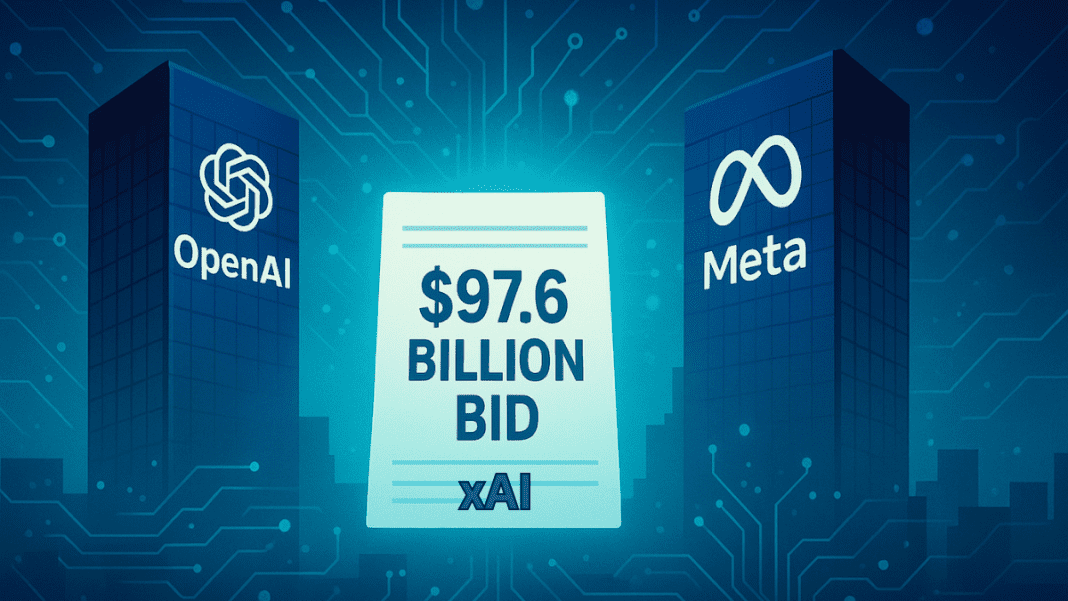In a new court filing, the makers of ChatGPT revealed that a high-profile tech billionaire tried to bring another big-name rival on board for a massive takeover attempt. According to the documents, Elon Musk reached out to Mark Zuckerberg to explore ways to team up in his $97.6 billion bid to buy OpenAI.
Elon Musk’s huge bid for OpenAI
The filing stated that Musk’s company xAI and his legal team contacted Zuckerberg to discuss “potential financing arrangements or investments” connected to the deal. However, the filing also confirmed that neither Zuckerberg nor his company signed Musk’s letter of intent. In simple words, Musk’s attempt to get Meta’s chief to join forces did not work out.
Earlier this year, Musk made headlines by submitting an offer of $97.6 billion to purchase OpenAI, the company behind ChatGPT. His lawyers confirmed in February that a group of investors led by him had put forward the proposal.
But OpenAI ultimately turned down Musk’s offer. The company decided not to move forward with the deal, leaving Musk and his team empty-handed. This rejection became another chapter in the ongoing clash between Musk and OpenAI, a company he once helped create.
From co-founder to fierce rival
Back in 2015, Musk was among the original co-founders of OpenAI. He started the venture with Sam Altman and several others, with a mission to build safe and powerful artificial intelligence. At that time, the company was structured as a non-profit.
However, by 2018, Musk stepped away from the company’s board. He said that he left because of conflicts over the company’s direction, especially as OpenAI explored partnerships with major corporations and shifted to a for-profit model. Soon after, Musk began working on his own AI startup, xAI, to compete directly with OpenAI.
AI Investment Nightmare? 95% of Companies See Zero Returns, Tech Stocks Plummet After MIT Report
Since then, the rivalry has grown more intense. Musk has publicly criticized OpenAI for focusing too much on commercial success and not enough on its original mission. He has filed lawsuits accusing OpenAI of breaking its founding promises and has asked the courts to stop the company from changing its structure further. In February, Musk even mocked Altman on social media by calling him “Scam Altman.”
Tensions spill into public
The disagreements have not stayed inside the courtroom. Just last week, Musk and Altman clashed again online. This time, the fight was about Apple. Musk accused Apple of giving OpenAI unfair advantages in the App Store rankings. He went as far as threatening to sue Apple over what he claimed was preferential treatment for ChatGPT.
These public exchanges have highlighted just how bitter the relationship between the two sides has become. What started as a partnership in 2015 has now turned into a heated rivalry that stretches across courtrooms, social media, and the broader AI industry.
Meta enters the race for AI dominance
While Musk has been busy battling OpenAI, another major player has been making moves in the AI world. Meta, the company run by Zuckerberg, has been building its own large language model to compete directly with ChatGPT. Over the past year, Meta has stepped up its investments and poured resources into its AI research.
In the summer, Meta launched an aggressive hiring campaign, offering massive pay packages to top researchers. Some reports said these offers went up to $100 million for leading experts. The company managed to attract high-profile talent, including former CEOs and researchers from other leading AI labs, including OpenAI.
JD Vance urges Elon Musk not to take funding away from Trump’s Republican Party
The filing by OpenAI now sheds new light on how deep the competition runs. By pointing out that Musk reached out to Meta’s leadership for support, it shows that even rivals are willing to explore unexpected alliances when it comes to controlling the future of AI.
Court filing demands more details
As part of the ongoing legal battle, OpenAI has asked the court to order Meta to hand over any records of communication with Musk or his company xAI. The filing suggests that OpenAI wants to uncover exactly how much discussion took place between the two sides and whether any serious talks about financing or partnerships were ever on the table.
Meta has not commented on the situation. xAI and OpenAI also did not respond immediately to requests for further clarification. For now, the only public record comes from the filing itself, which confirms Musk’s attempt to bring Meta into the deal.
How Cyber Attacks on Industrial Control Systems Can Endanger Lives ?
The story is another sign of how personal and competitive the AI race has become. The biggest technology leaders are not only creating new systems but are also locked in legal disputes, takeover attempts, and high-stakes rivalries.
Musk’s effort to bring Zuckerberg into his $97.6 billion bid for OpenAI shows how far he was willing to go to take control of the company he once helped build. The rejection of that offer, combined with Meta’s rapid expansion into AI, ensures that the battle over artificial intelligence remains fierce and unpredictable.





